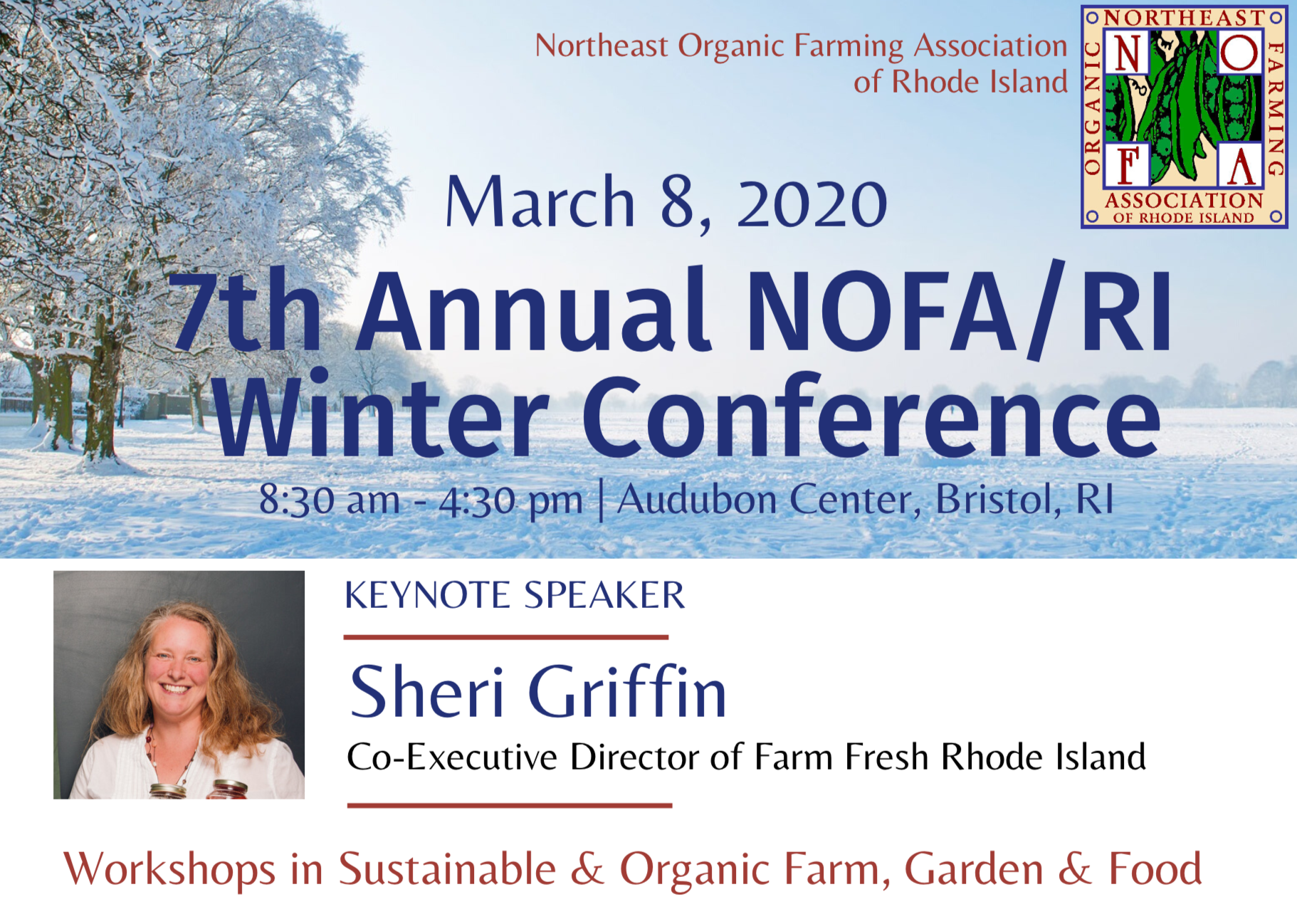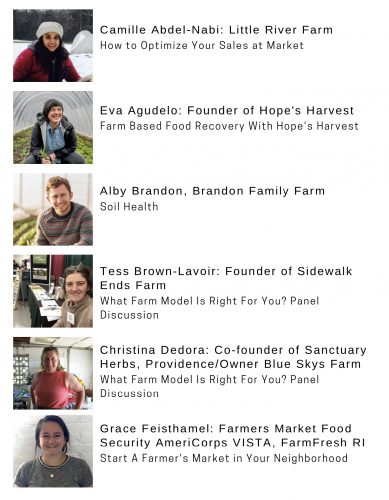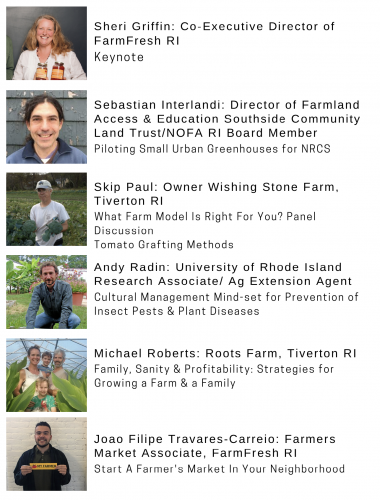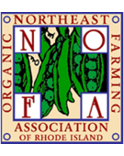
8:30 – 4:30 With Potluck Lunch!
See Workshops Below:
Crop Planning and Marketing for Value Added Products
SCLT Youth presenters
With support from the Governor’s Workforce Board and many other great partners, the youth workforce development programs at SCLT have grown tremendously over the past two years. The Youth Staff at SCLT now run their own farm at Somerset-Hayward in Providence, while helping to manage production at Galego Farm in Pawtucket as well. SCLT youth staff working in both Providence and Pawtucket are processing the foods they grow into value added products for sale. In Providence, this happens at West Elmwood Housing Development Authority’s Sankofa Kitchen, and in Pawtucket production happens at FarmFresh-RI’s Harvest Kitchen facility. Currently, the summer program has 44 youth employee positions, 20 in Providence and 24 in Pawtucket. In this workshop, the youth staff will talk about some of their project development work, and give you some ideas about how to foster youth employment and grow profits through value added foods on your own farm!
Farm Based Food Recovery With Hope’s Harvest RI
Eva Agudelo, founder Hope’s Harvest RI
Hope’s Harvest RI is Rhode Island’s first farm-based food rescue organization, mobilizing volunteers to glean surplus fruits and veggies from RI farms and distribute them to people in need. This workshop will provide details on how growers can take advantage of Hope’s Harvest services, including what we manage and provide (insurance, equipment, volunteer supervision) and an overview of how farmers can receive stipends for participation/contract with Hope’s Harvest to grow specifically for hunger relief agencies. The workshop will also include an open discussion about long-term planning for utilizing b-grade products to serve low-income and institutional markets locally and regionally.
Cultural Management Mind-set for Prevention of Insect Pests & Plant Diseases.
Andy Radin, URI Research Associate / Ag Extension Agent
Pest and disease management begins long before the season begins. By putting practices in place from the planning stage we can enhance the growth of plants or plant products and orchestrate our systems to mitigate pest and disease pressure. We will consider strategic thinking that can prepare us for protecting crop plants before they are attacked by pests and pathogens, and before they are out-competed by weeds.
Family, Sanity, and Profitability: Decision-Making Strategies for Growing a Farm and a Family.
Kelli and Mike Roberts, owners of Roots Farm, Tiverton, RI
Starting and running a farm is a big job with many complicated systems to establish and manage. Everything is always evolving as well, which makes it a constant work in progress. For those with the intention to raise a family while farming, the demands of the business and the farm require another level of management skills, communication and cooperation. Gain insight into the decision making strategies that have helped us grow our Roots Farm and family.
How To Optimize Your Sales At Market.
Camille Abdel Nabi, owner Little River Farm, Exeter RI
The first step of making your farmer’s market booth profitable starts in the field, by harvesting healthy crops and processing them correctly in the wash station. The next step is making your table a shopper’s delight by showcasing a bountiful display and by listening to what your customers want. Let’s talk about strategies to make sales and to create loyal customers for your farm and products. These strategies include sampling, newsletters, pre-order lists, surveys, and on- farm events. Your market presence can be both a profit center as well as a gateway for like minded customers to join and support your work, as well as take part in the development of new products you may not have known there was a market for.
How To Start A Farmer’s Market In Your Neighborhood
Grace Feisthamel, Farmers Market Food Security AmeriCorps VISTA at Farm Fresh RI and João Filipe Tavares-Carreiro, Farmers Market Associate, Farm Fresh RI
Join Farm Fresh RI staff for a workshop where we will be exploring the ins and outs of planning and managing a new Farmers Market! We will cover several key topics including: (1) Market Research (Determining customer base, site location, supply/demand for locally grown products, etc.), (2) Legal Requirements (site permits, liability insurance etc.), (3) Vendor Recruitment and Retention (identifying # of vendors, types of vendors, and whether or not potential vendors meet a price point that is appropriate for your customers), (4) Operational and Management requirements and (5) Marketing (promotion and advertising) strategies for Farmers Markets.
Listening Session: Farm Marketing Challenges & Opportunities.
Sheri Griffin, Co-Executive Director of Farm Fresh RI
Marketing is challenging and sales and client relationships take time and effort. The media landscape is loud and it can be hard to get the attention of customers for your amazing products. Join in a listening session to give voice to and explore the challenges and opportunities growers face with marketing in 2021. Let’s discuss how to cultivate customers and what tools would be most helpful to create a robust business for your farm.
Pilot Small Urban Greenhouses for NRCS
Sebastian Interlandi, Director of Farmland Access and Education at Southside Community Land Trust, NOFA RI Board Member
NRCS funding is available to rural farmers for the construction of high tunnels, with payments often covering the full cost of materials and installation when the farmer does construction themselves. For urban farmers, however, there are no approved structures small enough, so NRCS support is not accessible to these farmers, putting them at an unfair disadvantage to their rural competitors. URI’s John Taylor proposed that SCLT partner with him to trial new small raised-bed greenhouse systems with urban farmers. He got the support for the project through USDA’s Conservation Innovation Grants Program. We are currently working with three urban farmers from socially disadvantaged backgrounds in Providence, Pawtucket and Central Falls to conduct field trials and collect the data needed to prove these systems to NRCS. Once NRCS approves the structures, urban farmers all over the US will be able to access funding to construct these systems. It will be a game changer for small urban growers allowing them to see up to $25K in gross sales from a footprint of less than 750 square feet. In other words, nearly every homeowner with a sunny yard could become a cash farmer relatively quickly with this development.
Scaling Up! From Urban Backyards to Rural Farms
SCLT Farmers
Over the last 40 years, in a somewhat ad-hoc way, SCLT has developed a suite of programs that educate gardeners, provide them access to land, and then help them to become commercial growers by moving them through ever larger parcels of land and often onto their own farms on land outside of the SCLT network. In this workshop, SCLT staff and growers will present two case studies of growers who began with small plots of land for their families, and are now managing multi-acre, commercial enterprises with sophisticated marketing and product development strategies. The holistic approach that SCLT has developed over time, that considers all aspects of grower’s history and lifestyle in finding the right home(s) for their operation over time is one which relies on deep relationships and common respect between the organization and the farmers. Even while SCLT staff is constantly changing, the service programs are constantly strengthening, so this looks to us a good model to share for others interested in developing communal growing systems.
Tomato Grafting Methods
Skip Paul owner of Wishing Stone Farm, Little Compton, RI
Increase tomato production with superior root stock or hybridize your favorite varieties by grafting your own tomatoes. Learn tools and techniques to create healthy plants that will thrive in your garden or on your farm.
What Farm Model Is Right For You? Panel Discussion
Christina Dedora, owner of Blue Skys Farm, Cranston, RI
Tess Brown-Lavoie, founder of Sidewalk Ends Farm, advisor at Land For Good, Skip Paul owner of Wishing Stone Farm, Little Compton, RI
Should your farm model be based on a CSA program? Markets? Wholesale? Value Added? All of the above or something else? Join a conversation to hear the experience of three farmers and hear their logic and discovery process for what model(s) worked for their operations.



